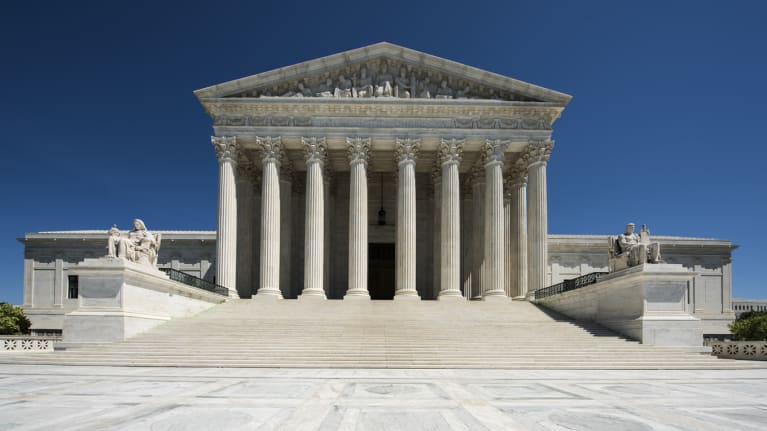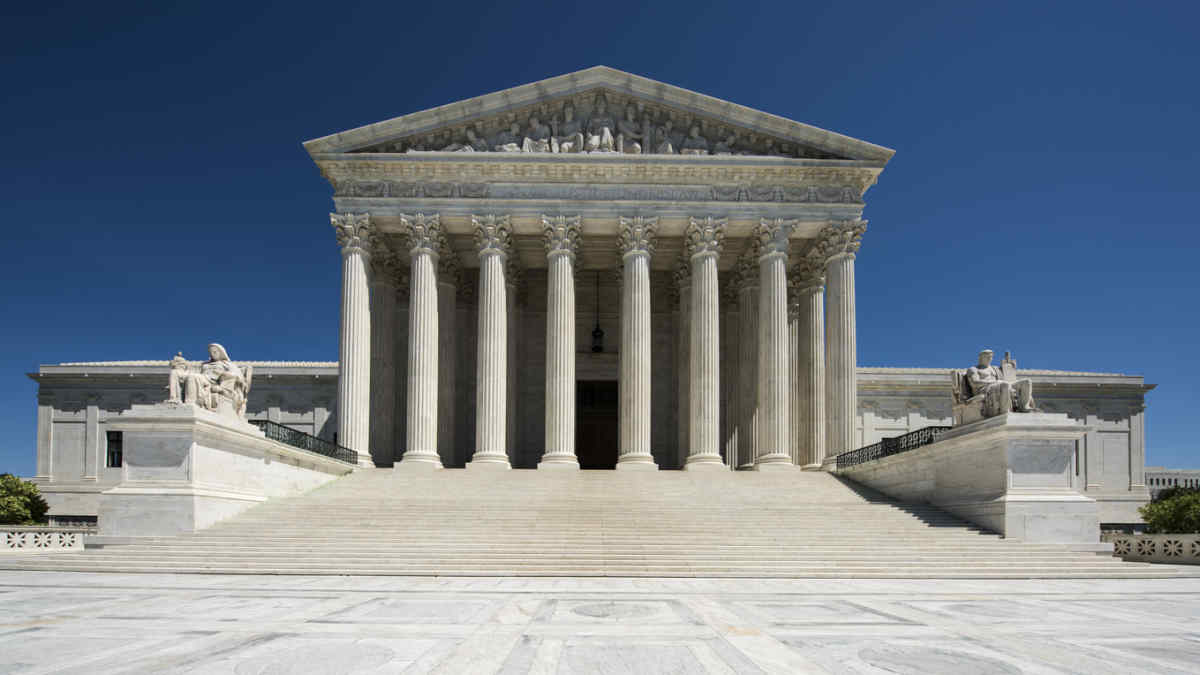

?A Washington workers’ compensation law applying only to federal contract workers at one federal facility in the state made it unconstitutionally easier for federal contractors to obtain workers’ compensation than state or private employees, the U.S. Supreme Court unanimously ruled on June 21.
The U.S. Constitution’s Supremacy Clause generally shields the federal government from state laws that directly regulate or discriminate against it. In United States v. Washington, the Supreme Court concluded that the state law discriminated against the federal government.
The state law fell outside the scope of Congress’ waiver of immunity for state workers’ compensation laws that apply to projects belonging to the federal government in the same way as if the premises were under the exclusive jurisdiction of the state.
“We see a general trend that state legislatures continue to broaden their workers’ compensation programs, focusing on increasing access, expediting treatment and easing the ability of workers to secure benefits,” said Debra Doby, an attorney with Vaughan Baio & Partners in New York City. “This decision certainly serves as a reminder to state legislatures that any changes to workers’ compensation statutes must be applied fairly and equitably for all entities, including the federal government.”
Background
The state law, enacted in 2018, applied only to federal contractors—not federal employees—at a site once used to develop and produce nuclear weapons, generating a massive amount of chemical and radioactive waste. After the Cold War, the federal government began decommissioning and cleaning up the nuclear site. Most of the workers are federal contract workers. A smaller number of workers include federal employees, state workers and employees who work for private companies not under contract with the federal government.
Compared to the general state workers’ compensation regime, Washington’s law made it easier for federal contract workers at the site to establish their entitlement to workers’ compensation by creating a presumption that certain diseases are caused by the cleanup work. The presumption could be disproved only by clear and convincing evidence. The presumption also lasted for a worker’s entire life.
The United States sued Washington, arguing that the law violated the Supremacy Clause by discriminating against the federal government. The district court ruled that the state law fell within the scope of the federal waiver of immunity and was constitutional. The 9th U.S. Circuit Court of Appeals affirmed.
Court’s Holding
The Supreme Court reversed and held that the law violated the Supremacy Clause.
First, the Supreme Court found that the case was not moot even though Washington had enacted a new law applying the presumption more broadly to any worker at a radiological hazardous waste facility.
The U.S. maintained that if the Supreme Court ruled in its favor, it would recoup or avoid paying between $17 million and $37 million in workers’ compensation claims that lower courts have awarded under the earlier law. The Supreme Court determined that the U.S. might recover money if the court ruled in its favor.
The court then noted that it has said that a state law discriminated against the federal government or its contractors if it singled them out for less favorable treatment or regulated them unfavorably on some basis related to their governmental status.
“Washington’s law violates these principles by singling out the federal government for unfavorable treatment,” the Supreme Court said. The U.S. also had not clearly authorized a state to enact a discriminatory law that singles out the federal government for unfavorable treatment.
The court stated that waivers of intergovernmental immunity should be interpreted narrowly, “at least where a state claims that Congress has waived immunity from discriminatory state laws.”
Close Scrutiny of Similar Statutes
The Supreme Court’s ruling shows that “if there is any hint of discrimination that increases the costs for the federal government, those statutes will be subject to close scrutiny,” Doby said.
Under the intergovernmental immunity doctrine, state laws may not increase costs to the federal government of performing its functions unless the laws impose those costs in a nondiscriminatory way, said Crystal McElrath, an attorney with Swift Currie in Atlanta.
“As we enter another charged election cycle, this ruling may impact the kinds of campaign promises that would-be state legislators make,” she added. “State legislators may not target and penalize the federal government in order to right a perceived social wrong without the federal government’s consent.”
McElrath concluded, “States that wish to expand workers’ compensation coverage to include specific conditions must do so at the expense of both private and federal employers or be sure that any law targeting only federal workers falls within the narrowest reading of a congressional waiver of intergovernmental immunity.”

